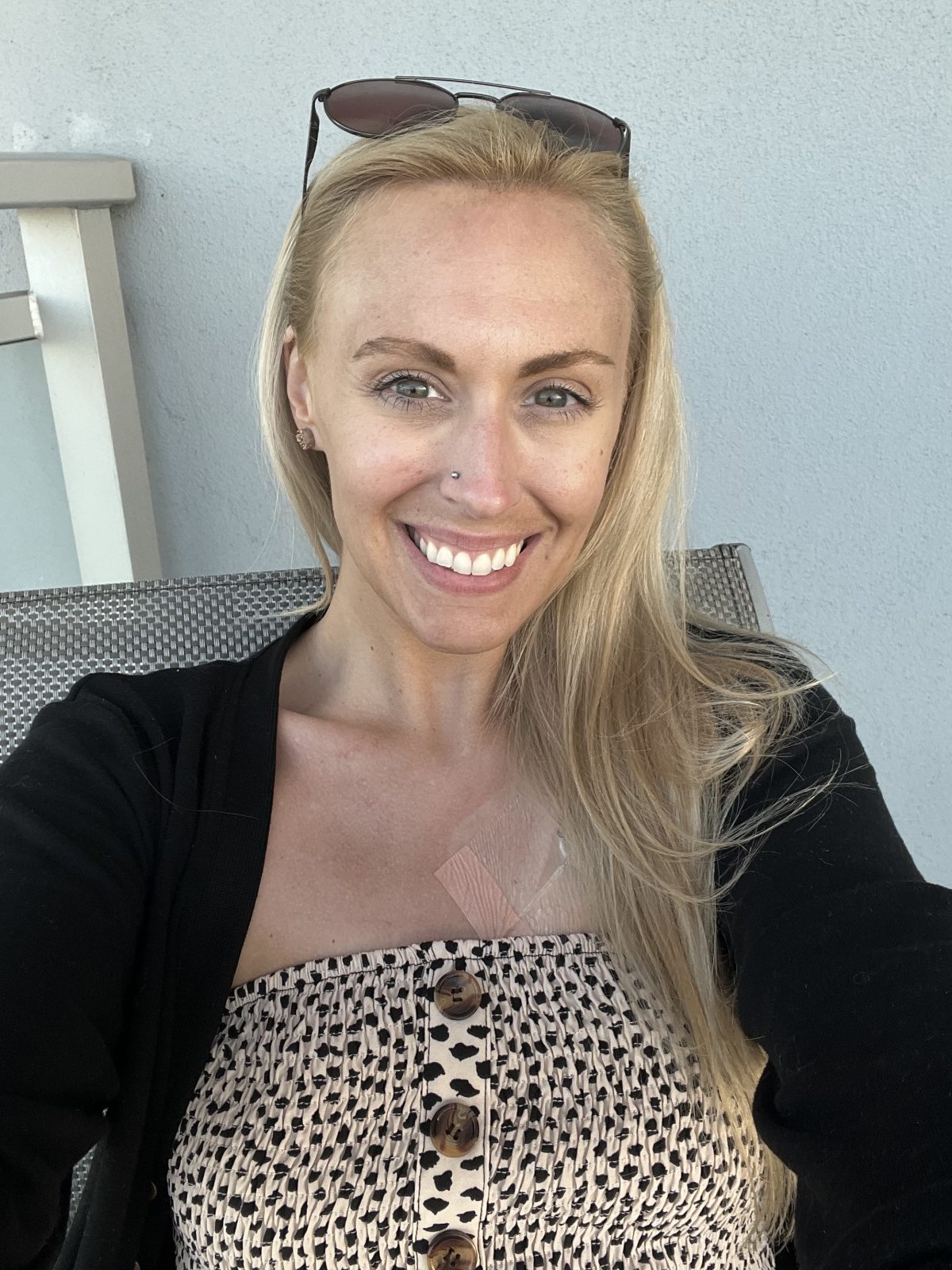My name is Ashley Mann. I am a stay-at-home dog and cat momma in Lansing, Michigan. Over the last few years, I’ve embarked on an ongoing journey of self-discovery, seeking personal growth and understanding. I have been diagnosed with Ehlers-Danlos Syndrome, POTS (Postural Orthostatic Tachycardia Syndrome), Gastroparesis, Lupus, and Endometriosis. Here are some of the things I’ve learned along the way.
5 invisible symptoms:
- Extreme fatigue
- Brain fog
- Muscle weakness/Muscle pain
- Gastrointestinal issues
- Frequent migraines/neck pain
Four things that help manage my pain:
- Physical Therapy – Understanding my body and learning to do smaller ranges of movements slowly. I can’t even think of how many times (workouts) hurt me before I understood I was doing it all wrong. I currently walk one-mile daily split into two sessions. While some days I can complete it without any problems, other days it becomes a challenging endeavor. Over the past few years, there have been instances where I’ve had to rely on a wheelchair, but I remain grateful for any opportunity to engage in movement.
- Hydration Infusions – Staying properly hydrated is extremely important. Sometimes I need extra help and infuse with my port a cath. It’s difficult to get your hydration in when you are almost constantly nauseous, but without enough hydration and electrolytes, every single symptom will get worse.
- Taking time out of every day to “relax” – My preferred method is indulging in warm baths with Epsom salt and candles (although I have to be careful about the water temperature to prevent any adverse effects). Gentle massages, utilizing heating pads, and ice packs as needed also can be helpful. Elevating my feet above heart level, practicing breathing exercises, and engaging in meditation are additional techniques that bring me comfort and peace.
- Talk therapy – Engaging in talk therapy has been extremely valuable for me. Having a weekly session with someone who truly comprehends the challenges and isolation that come with chronic illness is essential. Sometimes just having someone there that I can get a good cry out to is the best therapy. I’ve definitely come to realize the importance of slowing down my lifestyle, which I’ve learned the hard way. Therapy aids me in accepting the aspects of my condition that I cannot change, while also helping me look forward to the things within my control and the actions I can take.
Three ways my life has changed:
- I’ve come to understand that I can’t manage everything the way I used to, and it’s important for me to seek assistance. I’ve recognized that my illness is not visible, so I need to communicate verbally and express my needs to others because they can’t intuitively know what I’m experiencing. I’ve also learned not to criticize myself for asking for help, even for tasks that may seem easy. Some days, that’s just how things are for me.
- Work. Chronic illness is a job in itself. The term work has become something totally different to me. Work for me is self-care, doctors’ appointments, physical therapy, and researching so I can self-advocate. All of these things including the unpredictability of my chronic illnesses make “standard” work seemingly impossible for me to sustain at this chapter in my life.
- Food – Eating for pleasure is a rare occurrence for me. Due to my illness, Gastroparesis, which can accompany Ehlers Danlos Syndrome, I simply cannot grab whatever I want from the refrigerator whenever I feel like it. Each day, and even each hour, brings different challenges. I may be able to eat something in the morning without any issues, but trying the same thing at night could make me extremely sick. Holidays and events centered around food are particularly tough for me. There’s always a lingering fear that any drink or food could trigger a negative reaction, which ultimately prevents me from fully enjoying these occasions.
Two people who inspire you and give you hope:
- My mother! She has never doubted the invisible. She plays a crucial role in ensuring that I receive the necessary diagnoses and treatments. Her endless support has been the foundation of my strength.
- My fiancé has been instrumental in my health journey. I’ve lost count of how many times he has cared for me and nursed me back to health. He willingly embraced the responsibility of learning how to access my port at home, allowing me to undergo necessary medical treatments while being comfortable in my own bed. He serves as my greatest source of support, constantly cheering me on and advocating for my well-being.
One Thing you want people to know:
Although this illness cannot be cured, the more you educate yourself about it and
understand your own condition, the better equipped you will be to handle it. It’s
important to treat yourself with kindness and always remember to embrace self-love.


